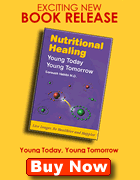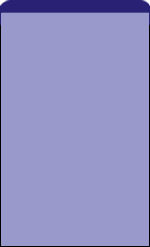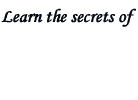 |
Vitamin C is on the top of the list of the water-soluble group. Unfortunately,
man, apes and guinea pigs, cannot manufacture vitamin C due to the lack of enzyme
called L- gulonolactone oxidase. Therefore, it should be ingested through our
diet or supplementation. Vitamin C is a magical antioxidant as it works within
the plasma, which means both inside and outside the cell. It reaches peak blood
level within 2-3 hours of ingestion and has a half-life of 5-22 hours. It is
critical for collagen formation, which maintains the integrity of the connective
tissue, the skin, osteoid tissue of the bone and dentin of teeth.
Sources
Citrus fruit, blackcurrant, peppers, strawberries, cauliflower, broccoli, Brussels
sprout, cabbage and potatoes. Other sources are liver, kidney, watermelon, rosehips,
papaya and guava.
Functions
To only mention a few:
- Collagen synthesis
- Antioxidant activity
- It protects oxidation of LDL-cholesterol within plasma and hence protecting
against heart attack
- Involved in many biochemical processes in the body such as absorption of
iron, bile acid formation, manufacturing steroids in the adrenal gland and
in the synthesis of adrenalin from tyrosine.
- It converts folic acid into its active form - folinic acid.
- It is essential in wound healing and burns.
- Protects the following vitamins being oxidised: thiamin, riboflavin, vitamin
B5, folic acid, vitamins A & E. In addition, it regenerates vitamin E.
- It fights infection by stimulating interferon production, helping complement
system (immune system) and inactivating viruses by destroying their nucleic
acid.
- It reduces inflammation by inhibiting production of prostaglandin 2 (PGE2).
- It raises HDL-cholesterol (the good cholesterol).
- It protects against a variety of cancers including lung, bowel, pancreatic
and cervical.
- It protects the eyes from developing cataracts and macular degeneration.
|
 |
Deficiency
Deficiency may lead to fatigue, irritability, recurrent infection, depression
and delayed wound healing. If not treated it may lead to scurvy, which is a
severe and chronic form of vitamin C deficiency.
Scurvy is characterised by lassitude, spongy gums which tend to bleed easily,
weakness, sore joints, capillary and conjunctival haemorrhages and oedema. To
treat scurvy one needs to take only 30 mg of vitamin C per day.
Types of vitamin C
Sodium ascorbate, calcium ascorbate, magnesium ascorbate, potassium ascorbate,
ascorbic acid (pure) and ester C. Ester C is formed from the combination of
a few ascorbic acid molecules to create one large molecule. Ester C has no advantage.
Treatment indications
- Viral and bacterial infection
- Cancer, in particular lung cancer
- Surgery
- Burns, wound healing, fractures and inflammation
- Asthma and allergies
- Diabetes, cataract and macular degeneration
- Heart disease, hypertension and high cholesterol.
- Nervous system, stroke, epilepsy, Parkinson's disease, multiple sclerosis
and depression.
Dosage
RDA: 70-150 mg per day
EDR: 250-10,000 mg per day
Average dose in an adult is 2000mg a day.
Higher doses could be used in cancer patients. In my practice, I have used 30
grams IV (intra venous) with good results.
For more detailed information and specific recommendations, please [click here] to become a member of DrHabibi.com
|
 |




